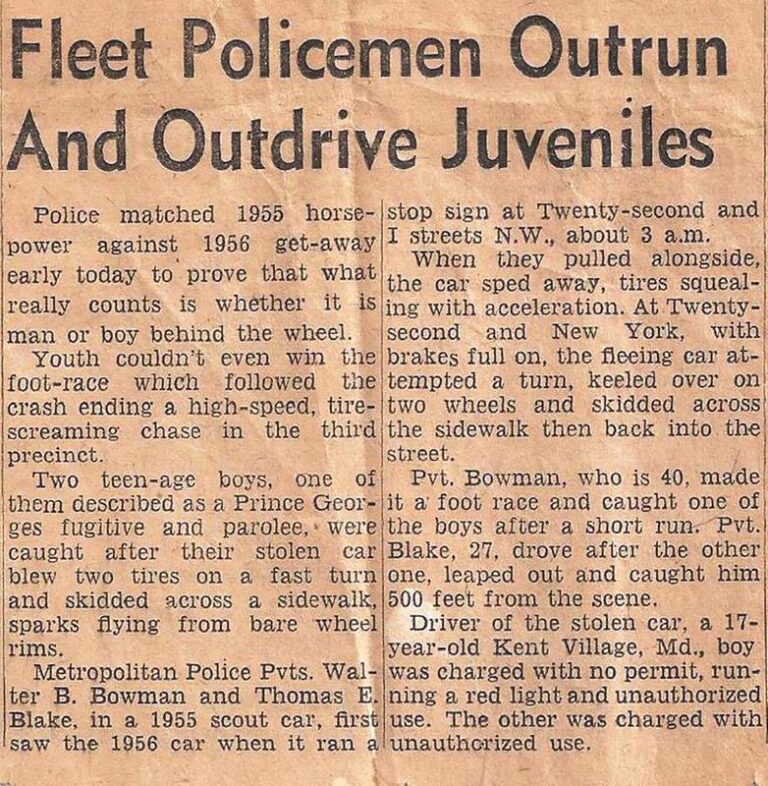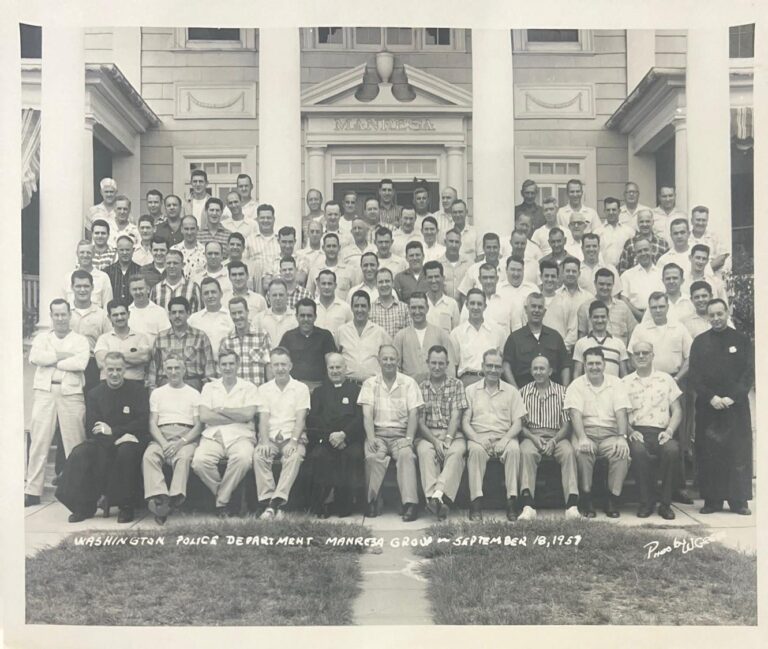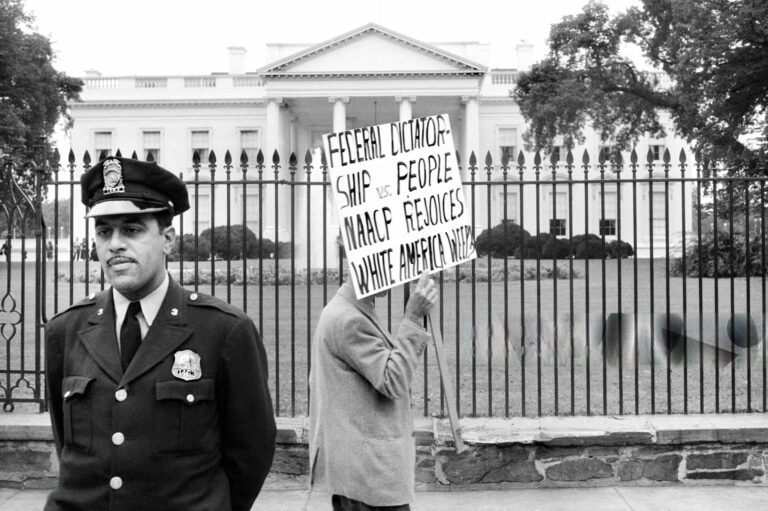1950-1959
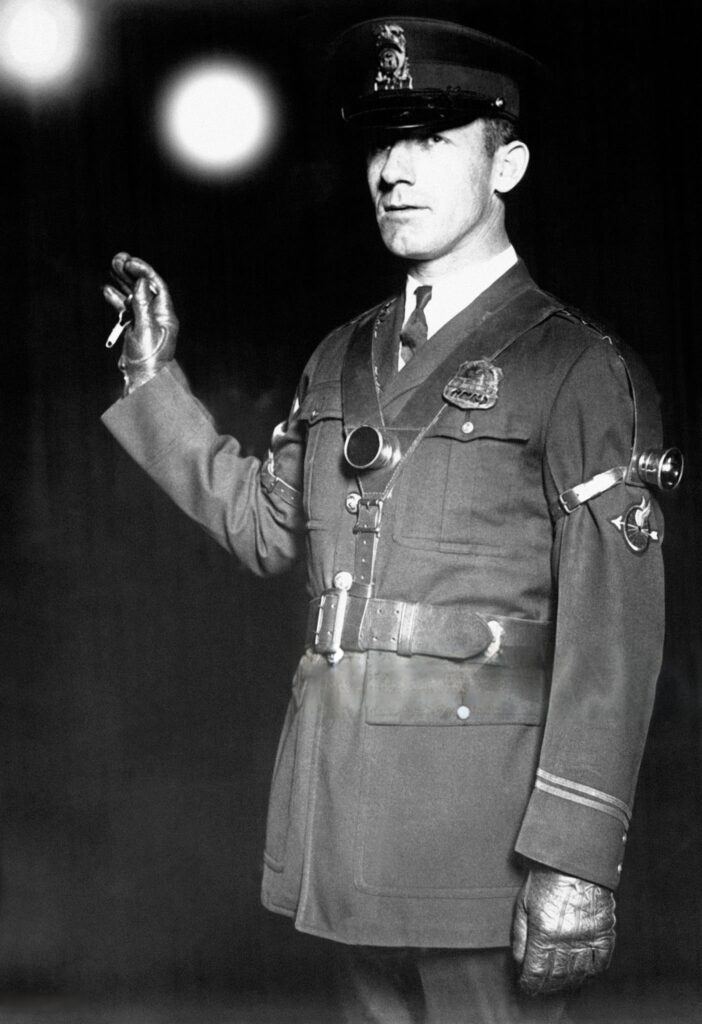

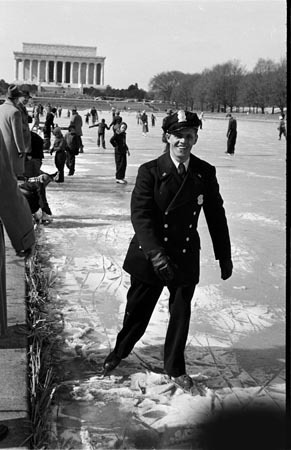
1950 – Officers arrest 14,151 persons for intoxication, an average of more then 100 per day. This caused the courts to be overwhelmed with cases and brought about a fundamental change in intoxication was handled.
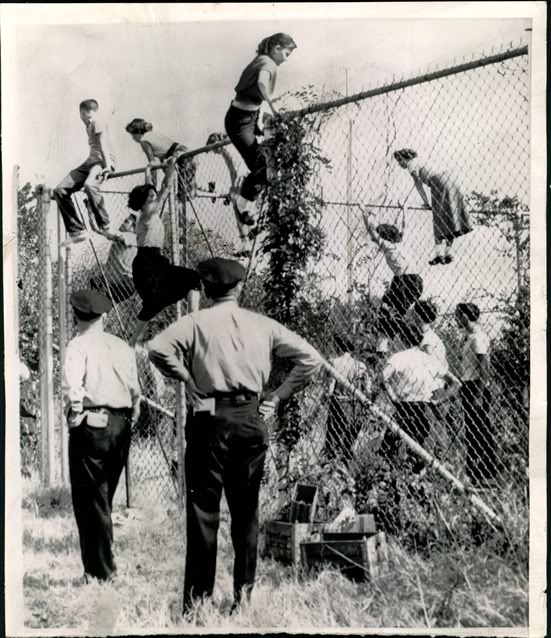
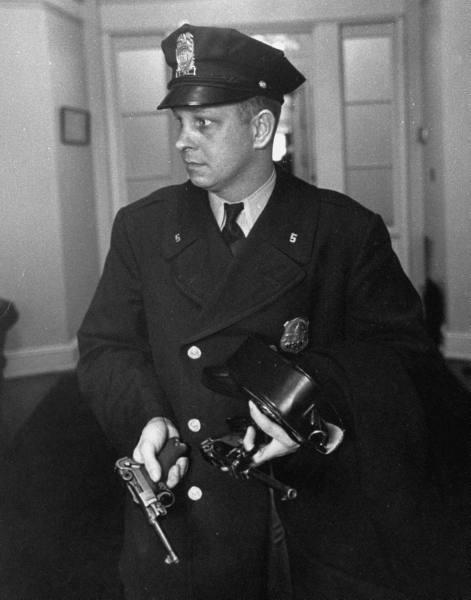
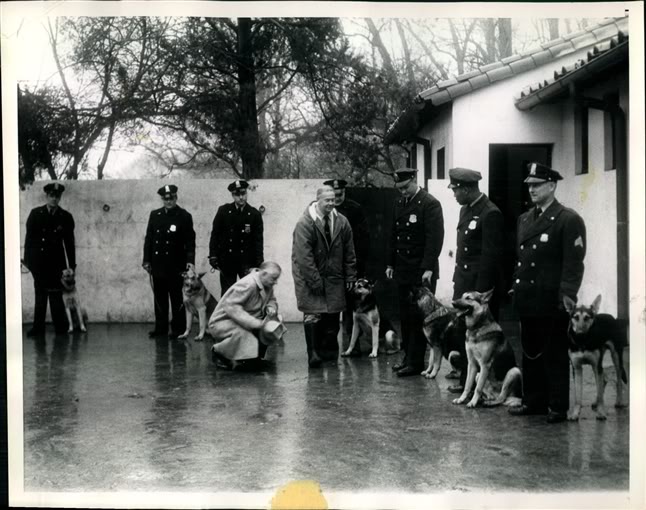
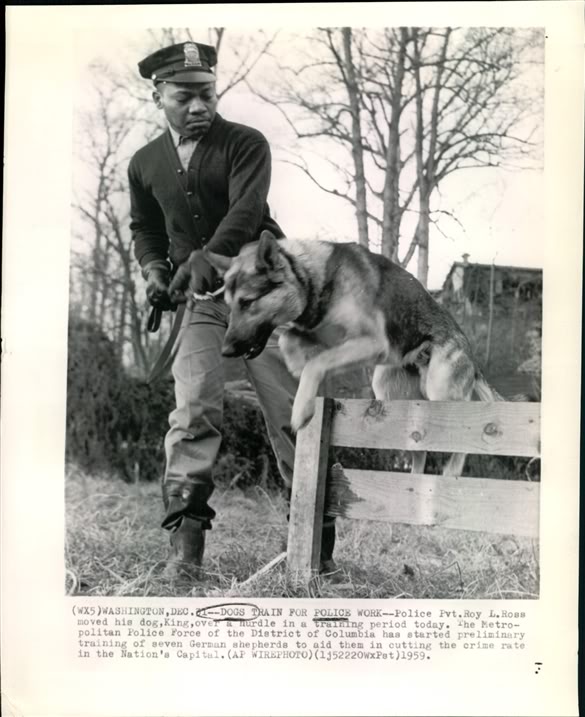
In 1955, a headline reported an incident where Private George Day was injured by a soda bottle thrown by a U.S. Postal employee while he was issuing parking tickets on G Place, NE. The suspect, later convicted of assaulting a policeman, also threw a bottle at a scout car, denting it. The incident and conviction allegedly led to the brief stoppage of delivery of the Chief’s mail.
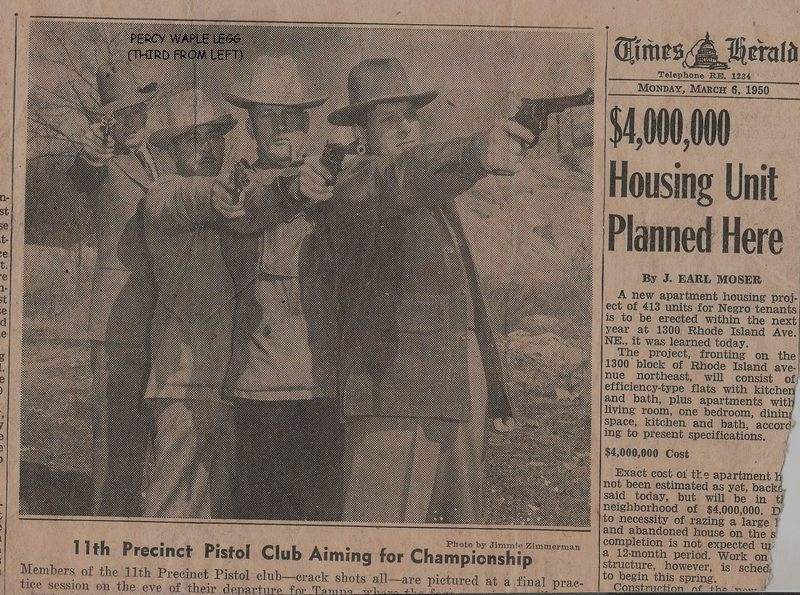
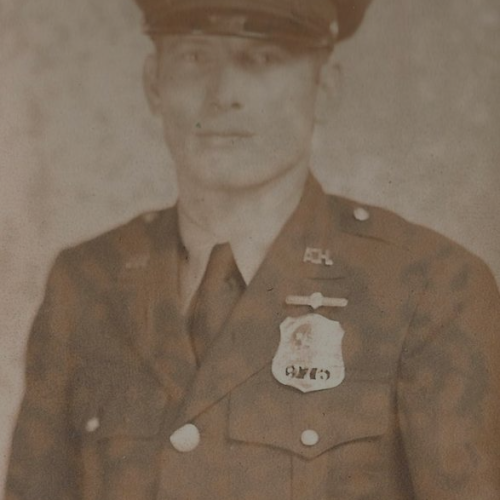
On August 12, 1957, the Washington Post ran an article about lost MPD badges.
Private William C. McLane of the 9th Precinct is very pleased to have recovered his badge. “After his gun, it’s the most crucial item a police officer could lose,” he stated. McLane found his badge two days after reporting it missing, in his son’s toy box.
In 1957, nine badges were reported missing, according to Inspector H. H. Heflin of the Uniform and Equipment Division. Last year, nineteen badges were lost. Officers replaced thirteen, and the Uniform and Equipment Division replaced six.
“So far this year [1957], five badges have been replaced by the officers who lost them, and one was replaced by the manufacturer who misplaced it during replating,” Heflin explained. Three cases remain unresolved.
Most badges are typically lost by off-duty officers who keep them in their pockets. Occasionally, a badge is lost when a suspect forcibly removes it from an arresting officer during an altercation.
“One ongoing case involves an off-duty officer who lost his wallet, containing his badge, while fishing in the Chesapeake Bay,” Heflin noted. “He took out a handkerchief, and the wallet fell overboard.”
When a badge is lost, the officer must report it to their commanding officer. The incident is then communicated through the police teletype system. Subsequently, the officer is required to advertise the loss in a local newspaper for three days.
If the badge is not returned, both the officer and their commander submit reports to the Uniform and Equipment Division. The Division reviews the case for a month, allowing for the possibility of recovery, before deciding whether the officer must pay $4.25 for a replacement.
The Division provides a free replacement only if the badge is lost in the line of duty.
“Members of the public rarely hand in lost badges,” Heflin remarked. “Occasionally, they are recovered years later during arrests. We have found that many suspects keep badges to impress their acquaintances.”
Inspector Heflin emphasized that the loss of nineteen badges among more than 2,300 officers is not exceptionally high but acknowledged, “We consider any loss one too many.”
Police Lose Badges; 9 Missing This Year
By Susanna McBee Staff Reporter
The Washington Post and Times Herald (1954-1959); Aug 12, 1957;
ProQuest Historical Newspapers: The Washington Post pg. B6
1957 Eisenhower – Nixon Inauguration
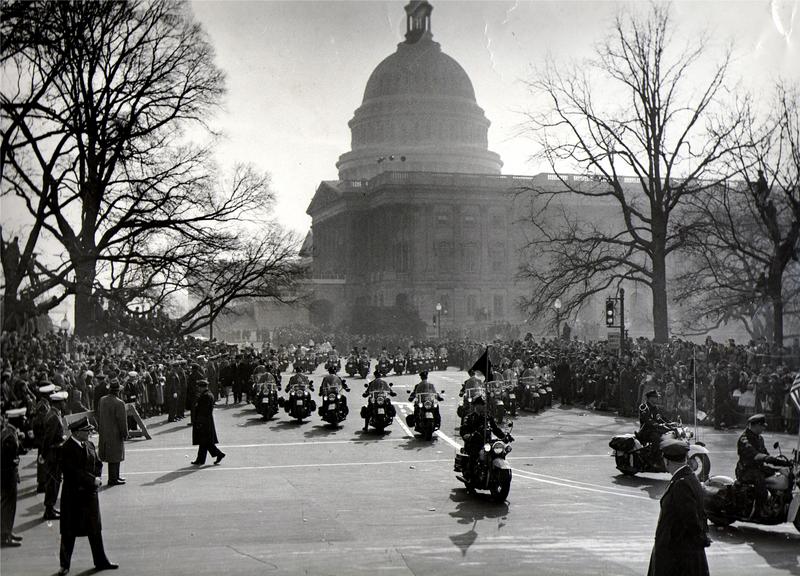
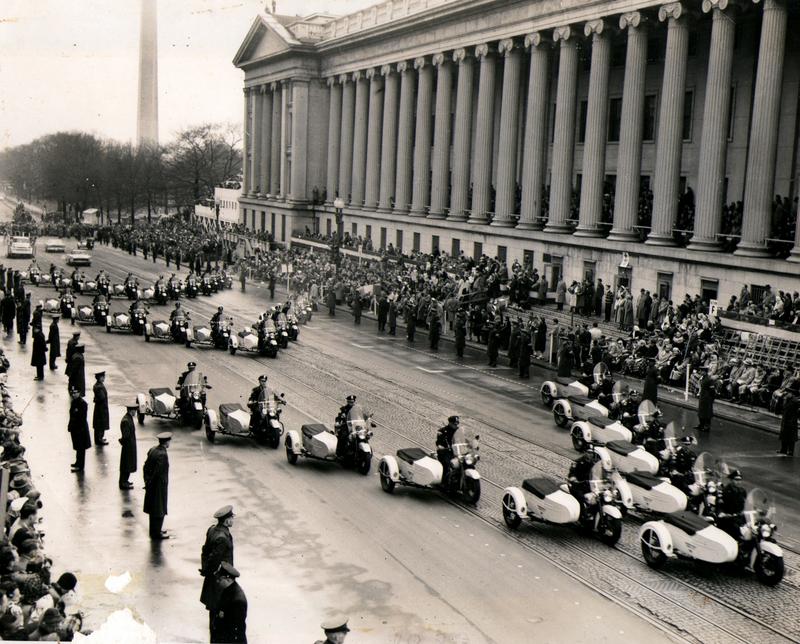
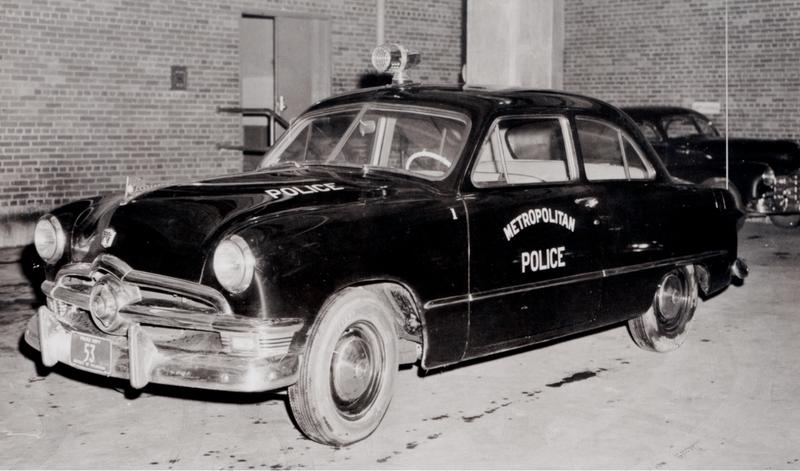
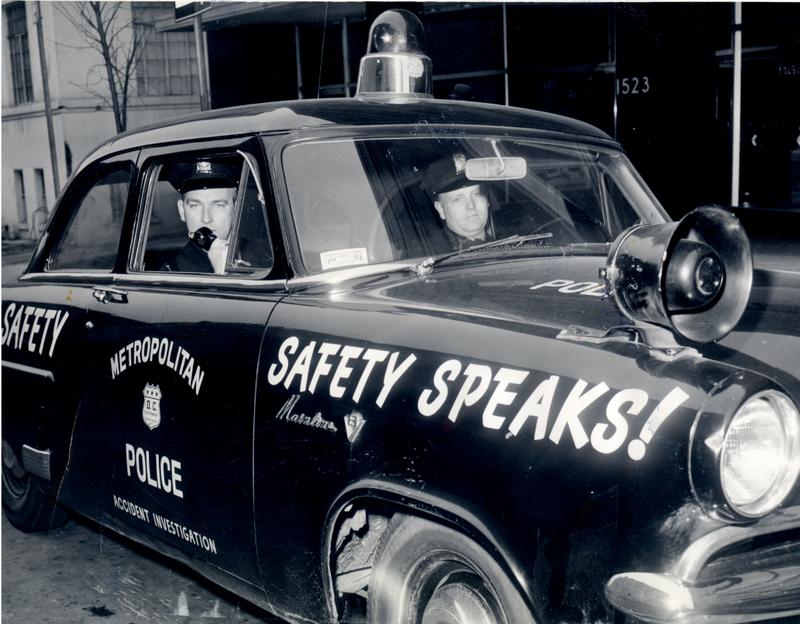
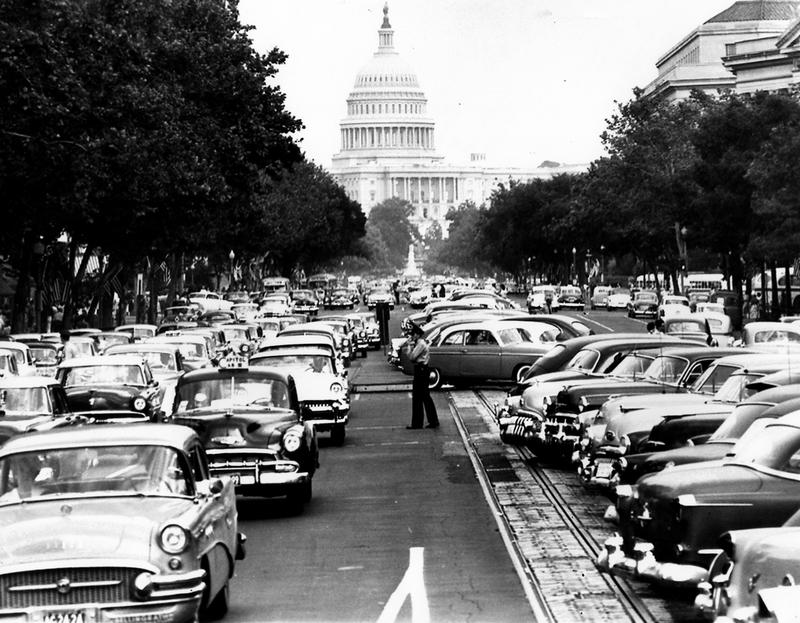

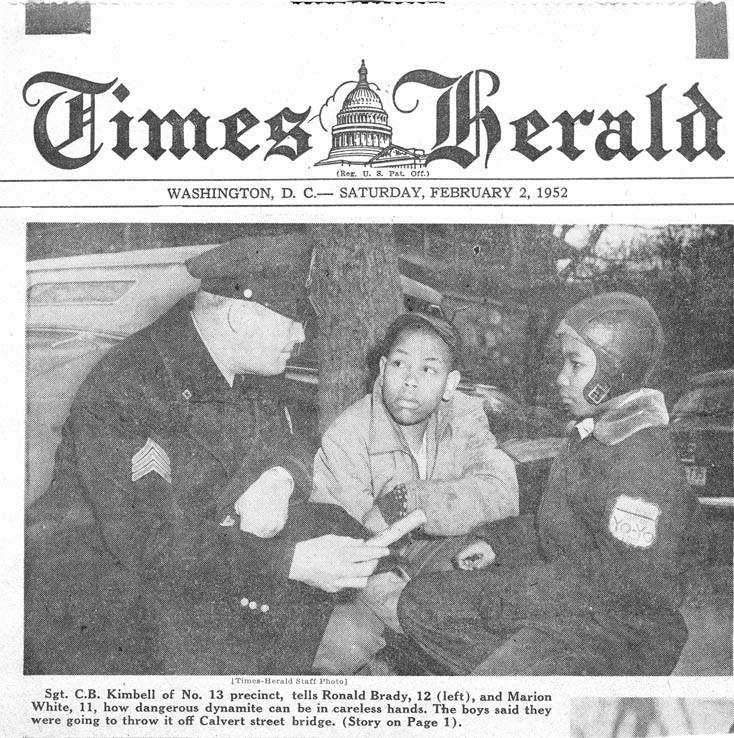
D.C. Times Facebook group, Steve Kimbell wrote, “Thought some of the former DC cops here might appreciate this – a photo of my grandfather in 1952 calmly explaining to a couple of kids the dangers of dynamite as they were about to toss it over the Calvert Street Bridge.
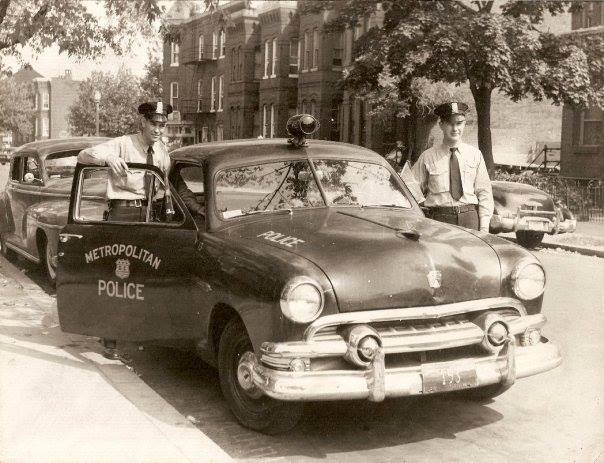
1953’s Streets of D.C.
M.P.D. officers Bill McKnight and Bob Long in 1953 heading out for patrol…
